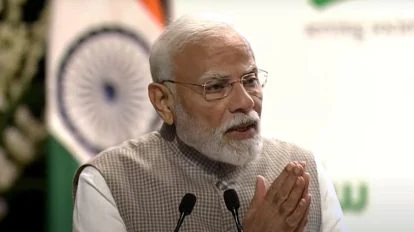‘I’m Ready to Pay the Price’: PM Modi Draws Red Line, Says No Compromise on Farmers Amid Rising US Trade Pressure
New Delhi, August 7 — In a bold and unapologetic stance amid mounting international trade pressures, Prime Minister Narendra Modi has declared that he is “ready to pay the price” but will not compromise on protecting Indian farmers. His remarks come at a time when the United States is reportedly pushing India to ease agricultural subsidies and open up its markets as part of ongoing trade discussions.
Speaking at an event in Gujarat, PM Modi emphasized that the welfare of Indian farmers will remain a top priority, even if it means facing global backlash or economic consequences. “India’s soil and its farmers are non-negotiable. No deal, no pressure, and no international power can force us to sacrifice their interests,” he said to loud applause.
While not naming any country directly, the Prime Minister’s statement is seen as a direct response to increasing signals from Washington, where lobbyists and trade officials have expressed concern over India’s agricultural policies, including subsidies, export bans, and MSP guarantees. The US, under the Biden administration, has been pushing for reforms that would make India more aligned with World Trade Organization (WTO) rules.
Sources say Washington has recently increased diplomatic pressure on New Delhi to review its stance on rice and wheat exports, especially after India’s decision to curb exports citing food security. Additionally, Washington is said to be eyeing India’s continued subsidies to key crops, claiming they distort global trade.
But PM Modi made it clear that India would not be bullied. “We are not against trade or reforms. But reform does not mean surrender,” he said, adding that India is committed to “Atmanirbhar Bharat” (self-reliant India), where farmers are empowered, not exploited.
Political analysts view this as Modi’s attempt to strike a nationalistic chord ahead of upcoming state elections, especially in agriculturally rich states like Punjab and Uttar Pradesh. It’s also seen as a signal to global powers that India is no longer willing to play the role of a passive partner in global trade negotiations.
Meanwhile, farmer unions welcomed the Prime Minister’s words but urged the government to back them with action. “We want policy, not just speeches,” said Rakesh Tikait, a prominent farmer leader.
With both domestic expectations and global demands rising, the path ahead for the Modi government remains tricky. But one thing is clear — when it comes to Indian farmers, the red line has been drawn.

